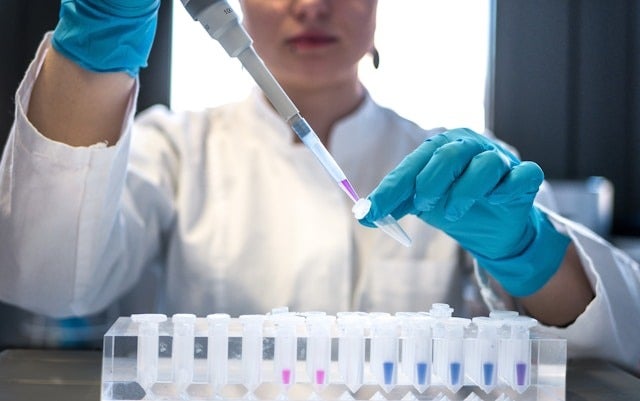
BostonGene has teamed up with Japan’s Saga University to discover biomarkers for immunotherapy (IO) treatment response and treatment-related toxicity in advanced non-small cell lung cancer (NSCLC) patients.
Epidermal growth factor receptor tyrosine kinase inhibitors (EGFR-TKIs) are the preferred treatment options for advanced NSCLC patients with EGFR mutations.
According to BostonGene, the acquired resistance often leads to recurrence within a couple of years, presenting a challenge for post-treatment optimisation.
Immune checkpoint inhibitors (ICIs) are standard therapy for NSCLC, but they lack efficacy in EGFR mutation-positive cases.
However, combination therapy with ICIs and anti-angiogenic agents has shown promise in EGFR-positive lung cancer.
The collaboration will conduct a study that will evaluate the tumour microenvironment (TME) using the BostonGene Tumour Portrait test.
The test will use tissue samples collected before EGFR-TKI treatment and before ICI administration in patients with EGFR-positive lung adenocarcinoma.
The study will examine the relationship between TME characteristics and the effectiveness of ICIs in these patients and investigate TME changes resulting from EGFR-TKI therapy.
Saga University professor Naoko Aragane said: “By partnering with BostonGene, we aim to uncover novel biomarkers to revolutionize how we approach immunotherapy treatment in EGFR-positive lung cancer, ultimately improving patient outcomes.”
The researchers will review cases where small-cell transformation due to EGFR-TKI resistance, to elucidate the molecular mechanisms underlying the transformation.
They will enhance the understanding of TME dynamics and its implications for treatment response, informing improved therapeutic strategies for EGFR-positive lung adenocarcinoma.
In 2023, BostonGene, NEC Corporation and Japan Industrial Partners established a joint venture, dubbed BostonGene Japan.
The JV leverages BostonGene’s advanced molecular technology and NEC’s biocomputational algorithms.
It aims to deliver personalised tests to cancer patients in Japan and collaborate with academic and industry partners to advance the development of targeted therapies.
BostonGene chief medical officer Nathan Fowler said: “Our collaboration with Saga University underscores our dedication to advancing the standard of care in Japan by bringing novel technologies to the region.
“The study marks an opportunity to delve deep into the complexities of the tumour microenvironment in EGFR-positive lung cancer patients, equipping oncologists with more targeted and effective immunotherapy strategies for their patients.”






